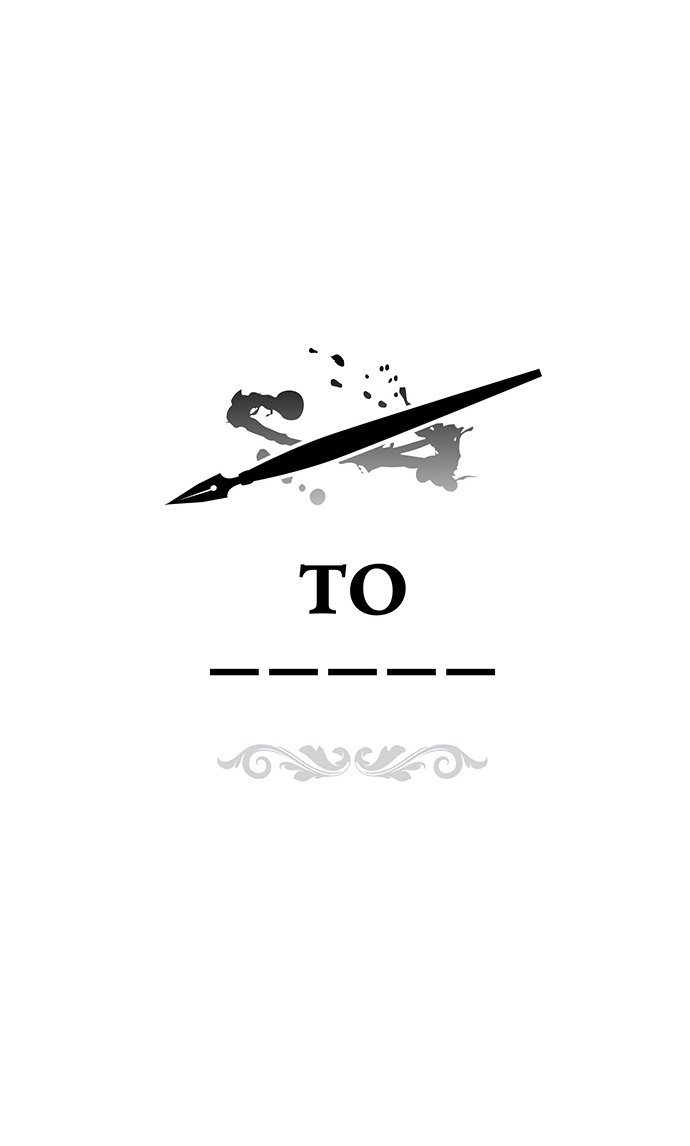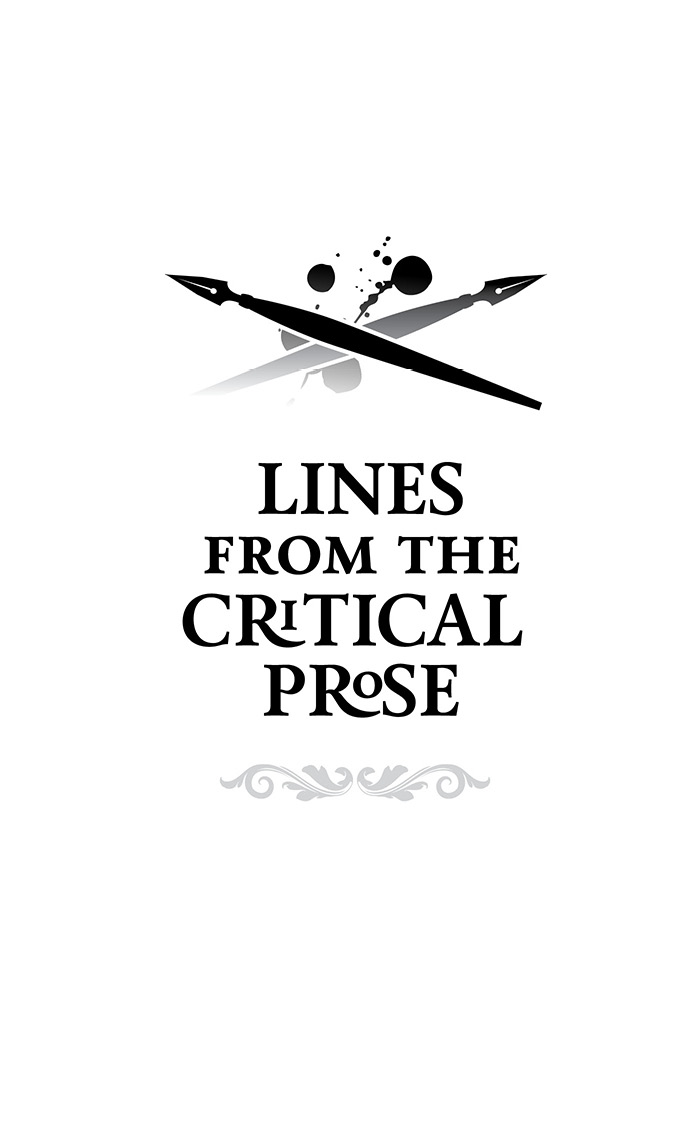The Slender Poe Anthology (15 page)
Read The Slender Poe Anthology Online
Authors: Edgar Allan Poe

ISRAFEL
“And the angel Israfel, whose heart-strings are a lut,
and who has the sweetest voice of all God's creatures.”
âKoran
In Heaven a spirit doth dwell
“Whose heart-strings are a lute;”
None sing so wildly well
As the angel Israfel,
And the giddy stars (so legends tell)
Ceasing their hymns, attend the spell
Of his voice, all mute.
Tottering above
In her highest noon
The enamoured moon
Blushes with love,
While, to listen, the red levin
(With the rapid Pleiads, even,
Which were seven,)
Pauses in Heaven
And they say (the starry choir
And all the listening things)
That Israfeli's fire
Is owing to that lyre
By which he sits and sings
â
The trembling living wire
Of those unusual strings.
But the skies that angel trod,
Where deep thoughts are a duty
â
Where Love's a grown up God
â
Where the Houri glances are
Imbued with all the beauty
Which we worship in a star.
Therefore, thou art not wrong,
Israfeli, who despisest
An unimpassion'd song:
To thee the laurels belong
Best bard, because the wisest!
Merrily live, and long!
The ecstasies above
With thy burning measures suit
â
Thy grief, thy joy, thy hate, thy love,
With the fervor of thy lute
â
Well may the stars be mute!
Yes, Heaven is thine; but this
Is a world of sweets and sours;
Our flowers are merely
â
flowers,
And the shadow of thy perfect bliss
Is the sunshine of ours.
If I could dwell
Where Israfel
Hath dwelt, and he where I,
He might not sing so wildly well
A mortal melody,
While a bolder note than this might swell
From my lyre within the sky.

In the aftermath of Virginia's death, Poe needed serious attention during the illness and mourning that followed her loss; Marie Louis Shew gave this to him, and though she, too, would in time “desert” him, before she did, he composed this poem for her. The foreign dissyllables are her first two names.
This poem alludes to other of his poems and tales as if Poe senses his own end is nearing, and he begins a kind of lyric coda to his work. The line “Unthought-like thoughts that are the souls of thought,” is likely another endeavor at giving his hypnagogic “fancies” expression in words.
The romantic German poet known as Novalis, dead from consumption at only 28, composed a series of brilliant aphorisms entitled,
Pollen;
this is one that Poe might have written: “Every beloved object is the focus of a paradise.”

TO âââââ
Not long ago, the writer of these lines,
In the mad pride of intellectuality,
Maintained “the power of words”
â
denied that ever
A thought arose within the human brain
Beyond the utterance of the human tongue:
And now, as if in mockery of that boast,
Two wordsâtwo foreign soft dissyllables
â
Italian tones, made only to be murmured
By angels dreaming in the moonlit “dew
That hangs like chains of pearl on Hermon hill,”
â
Have stirred from out the abysses of his heart,
Unthought-like thoughts that are the souls of thought,
Richer, far wilder, far diviner visions
Than even the seraph harper, Israfel,
(Who has “the sweetest voice of all God's creatures”)
Could hope to utter. And I! my spells are broken.
The pen falls powerless from my shivering hand.
With thy dear name as text, though bidden by thee,
I can not writeâI can not speak or think
â
Alas, I can not feel; for 'tis not feeling,
This standing motionless upon the golden
Threshold of the wide-open gate of dreams,
Gazing, entranced, adown the gorgeous vista,
And thrilling as I see, upon the right,
Upon the left, and all the way along,
Amid empurpled vapors, far away
To where the prospect terminatesâ
thee only!

The poet-critic is at times of two minds that are working at cross-purposes. The critic assessing, analyzing, judging. Often the critic has an agenda independent of the poem at hand. This agenda may be thought of as a set of spectacles that, when put on, perceive what the lenses are made to see.
When the poet is engaged in the making of a poem, the poet is after fulfillment of some promise that flickers in the heart, which the head needs to enhance and shape, so the soul will be satisfied. Sometimes the poet is painter and words are the paint. Sometimes the poet is composer and words are the notes fashioned into a melodious whole. The poet scores the poem on a blank page. The poet figures forth the poem on the canvas of silence, putting to use an optimal verbal palette.
The critic often needs to demonstrate superiority to the poem by pointing out the poem's insufficiencies. The critic needs to prove equal to the poet since anyone knowledgeable about the two verbal operations would surely prefer to write a poem than to do what critics do.
Let's remember what Jack Yeats once said to his son, William: “If it can be explained, it's not poetry.”
Just think of how much more of Poe's poetry we might have had he not given so much poorly remunerated time to the review of volumes of poetry now chiefly remembered because of his exertions as a critic.

LINES FROM THE CRITICAL PROSE
I need scarcely observe that a poem deserves its title only inasmuch as it excites, by elevating the soul.
*
The value of the poem is in the ratio of this elevating excitement.
*
A poem, in my opinion, is opposed to a work of science by having for its
immediate
object, pleasure, not truth; to romance, by having for its object an
indefinite
instead of a
definite
pleasure, being a poem only so far as this object is attained: romance presenting perceptible images with definite, poetry
in
definite sensations, to which end music is an
essential,
since the comprehension of sweet sound is our most indefinite conception.
*
Beauty is the sole legitimate province of the poem.
*
Dividing the world of mind into its three most immediately obvious distinctions, we have the Pure Intellect, Taste, and the Moral Sense. I place Taste in the middle, because it is just this position which, in the mind, it occupies.
*
Just as the Intellect concerns itself with Truth, so Taste informs us of the Beautiful while the Moral Sense is regardful of Duty.
*
When, indeed, men speak of Beauty, they mean, precisely, not a quality, as is supposed, but an effectâthey refer, in short, just to that intense and pure elevation of the
soulânot
of intellect, or of heart. . .
*
Now the object Truth, or the satisfaction of the intellect, and object Passion, or the excitement of the heart, are, although attainable, to a certain extent, in poetry, far more readily attainable in prose.
*
Beauty of whatever kind, in its supreme development invariably excites the sensitive soul to tears. Melancholy is thus the most legitimate of all the poetical tones.
*
I asked myself
â
“Of all melancholy topics, what, according to the universal understanding of mankind, is the most melancholy?” Death
â
was the obvious reply.
*
“And when,” I said, “is this most melancholy of topics the most poetical?” â¦the answer, here also, is obvious
â
“When it most closely allies itself to
Beauty
: the death, then, of a beautiful woman is, unquestionably, the most poetical topic in the world
â
and equally is it beyond doubt that the lips best suited for such topic are those of a bereaved lover.”
It is in Music, perhaps, that the soul most nearly attains the great end for which, inspired by the Poetic Sentiment, it struggles
â
the creation of a supernal Beauty.
*
I would define, in brief, the Poetry of Words as
The Rhythmical Creation of Beauty
.

Possibly America's most renowned poem, it began its illustrious career published anonymously, in the
New York Evening Mirror
in January 1845, 10 days after Poe's 36th birthday. Like Poe, it has always been an object of controversy; if you like it, then it's likely you will like Poe.
